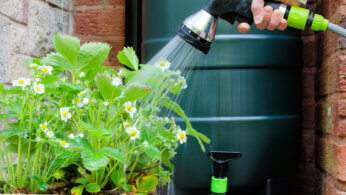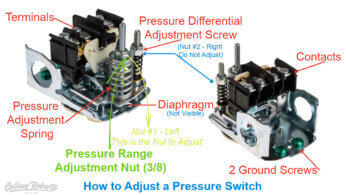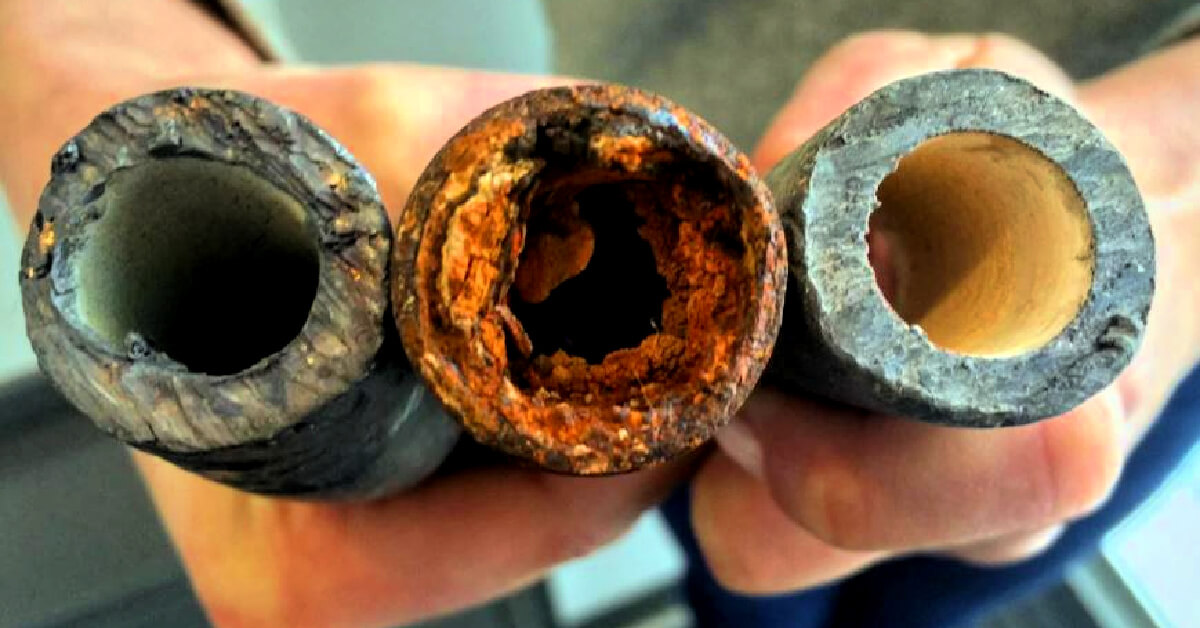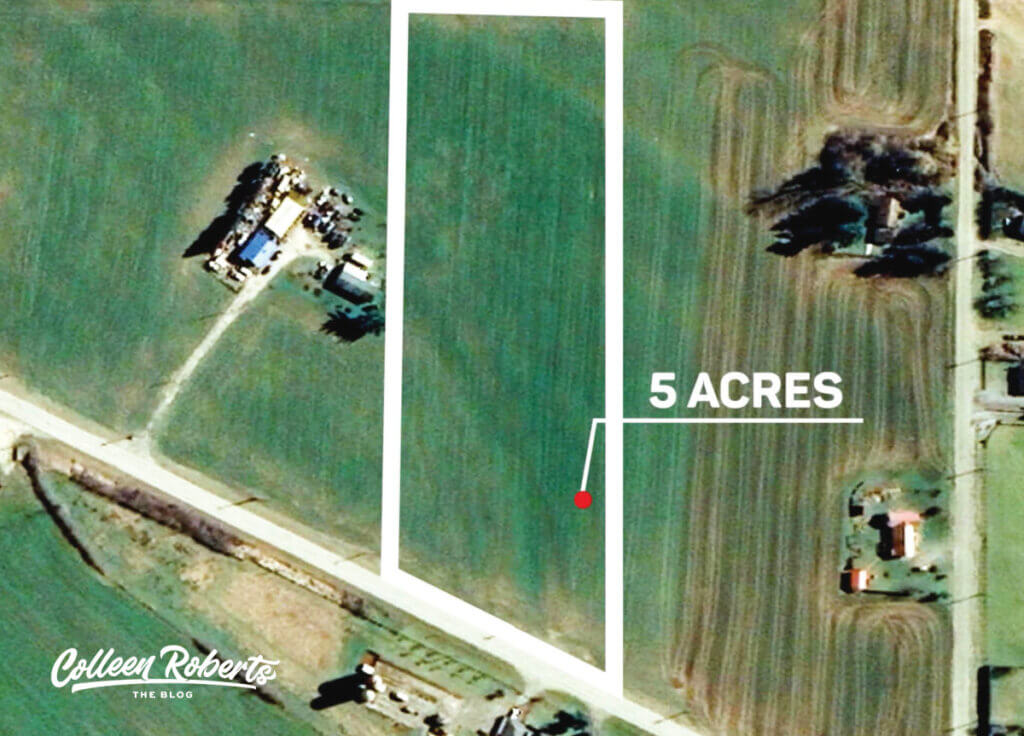
Joining the Area Migration: Tips for Purchasing Land for Sale in Rural British Columbia
Tired of the city grind, high home prices, and tiny yards? You’re not alone; life in the big city isn’t the same for many. An increasing number of people are looking to leave the busy city behind and seeking homes or land for sale in British Columbia communities.
Why are Some People Leaving the City?
Often in a large city, the things that matter most to people are hard to accomplish. Things have shifted when we look into why so many people are leaving the city for rural areas of the province.
- Do you find it practically impossible to become a homeowner?
- Are you tired of commuting to your workplace?
- Are you feeling the effects of inflation on your standard of living?
- Do you find air pollution and crime to be an increasing problem?
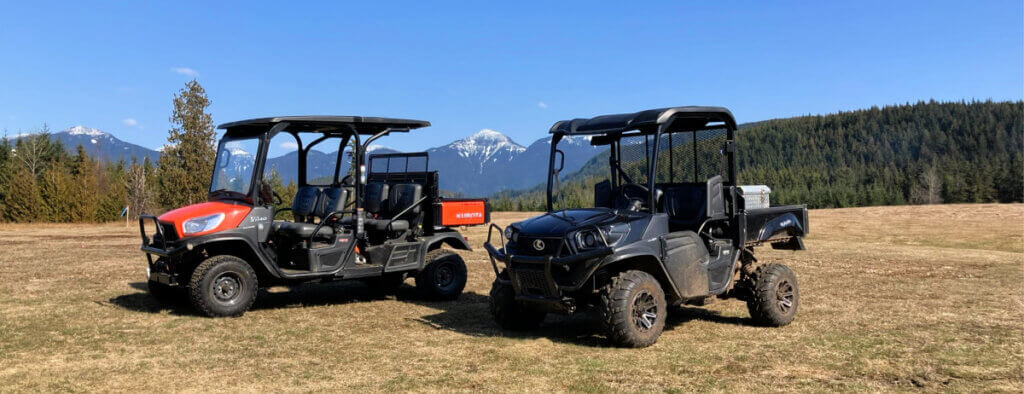
Urban vs. Rural Land for Sale in British Columbia
- Rural Migration and Inflation: The connection between migration and inflation has never been more apparent as prices worldwide increase. According to the Canadian Consumer Price Index, prices rose 6.8% annually in 2022, following gains of 3.4% in 2021 and 0.7% in 2020.
The increase in 2022 was a 40-year high, the most significant increase since 1982 (+10.9%). Excluding energy, the annual average CPI rose 5.7% in 2022 compared with 2.4% in 2021. As cities become increasingly more expensive, people are increasingly moving to rural areas in British Columbia that are more affordable. - Increased Crime: The nation’s primary crime survey has shown that violent crime has risen in bigger cities due to the detriment of inflation, leading to an atmosphere of greater desperation.
- Affordability: In most cases, rural homes and land for sale in rural British Columbia are much more affordable than their urban counterparts. Starting a family in the city has become even more difficult because housing costs are so high.
- Over-Crowding: the increased population contributes to more traffic, crowds, and a lack of personal space in public areas such as parks and sidewalks.
- Lack of Nature: There are many beautiful parks in the cities of British Columbia, but most people prefer rural areas where they can find open spaces for outdoor activities such as hiking or camping without having to travel a long distance.
Changing Course: The Benefits of Rural Living in British Columbia
Rural-urban migration is a complex phenomenon influenced by economic, social, and environmental factors. However, since the COVID-19 pandemic, people have been moving from urban areas seeking homes and land for sale in rural British Columbia.
The desire for more affordable housing within the province and lower living costs is one of the primary drivers of this migration. Urban areas such as Vancouver have seen skyrocketing housing prices in recent years, making it difficult for many people to afford to live there. In contrast, rural areas typically have more affordable housing options, lower taxes, and less expensive living expenses.
Another factor driving rural-urban migration is the desire for a better quality of life. Many people love the natural beauty and outdoor recreational opportunities that rural areas offer, as well as the sense of community and slower pace of life.
People also work remotely because of the COVID-19 pandemic, so they are no longer tied to urban areas. As a remote worker, you’ve realized you can do your job anywhere with a good internet connection. So why not take advantage of that and move to a more scenic, relaxed country living property? People can move to rural areas without sacrificing their careers; just be sure to check out the speed of your rural area’s internet!
While rural-urban migration can benefit both urban and rural areas, it can also create challenges. For example, rural areas often have different infrastructure and services than urban areas, making it difficult for newcomers to adjust. Rural areas could benefit from help in providing job opportunities and other resources to sustain an increasing population.
Overall, the trend of rural-urban migration in British Columbia will probably continue in the coming years as more people seek affordable housing and a better quality of life in rural areas. However, it will be necessary for policymakers and community leaders to work together to address the challenges that this trend can create and ensure that both urban and rural areas can thrive.
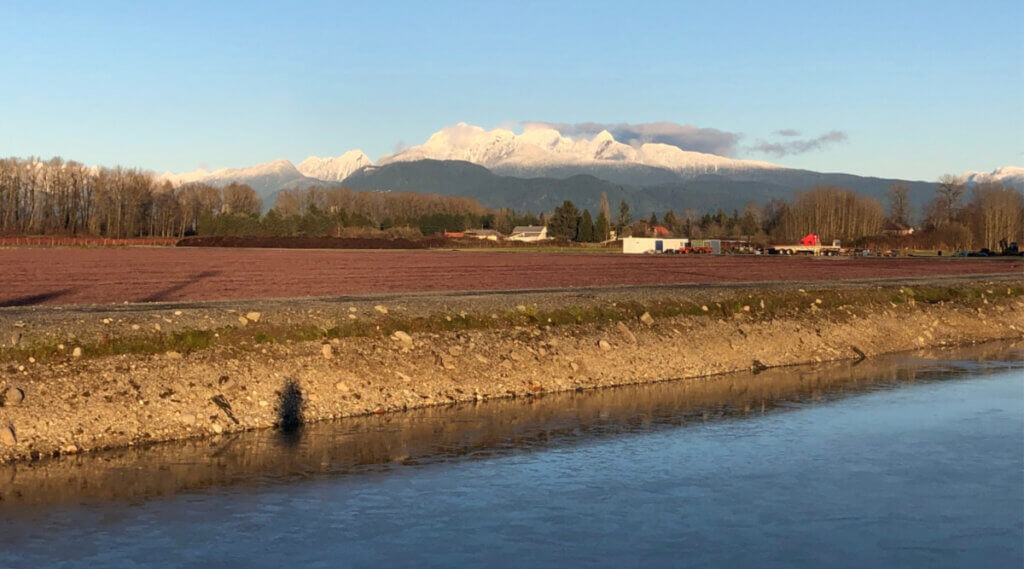
Evaluate Before Purchasing Rural Property in British Columbia
When purchasing land for sale in rural British Columbia, there are many factors to ensure you’re making a wise investment and that the property meets your needs. Here are some key aspects to evaluate:
- Purpose: Determine your primary aim for purchasing the land, such as farming, ranching, timber production, recreation, or building a home. This will guide your search and help you assess the property’s suitability.
- Location and Access: Research the area, considering the proximity to towns or cities, and evaluate the ease of access to the property. Ensure that there are well-maintained roads and good access or that you have legal access to the property through easements.
- Land and Soil Quality: Evaluate the land and soil quality, especially if you plan to use it for agriculture or livestock. Investigate the soil type, fertility, drainage, and other relevant factors.
- Water Resources: This is a BIG one! Assess the availability and quality of water sources, such as water wells, streams, or ponds. Water is crucial for agriculture, livestock, and domestic use, so ensure the property has an adequate supply. You may require a water license in British Columbia to legally use a water system if it’s beyond domestic use.
- Water Licensing is Mandatory in British Columbia. The province’s primary water management legislation is the Water Sustainability Act (WSA). Under the WSA, any individual, business, or organization that plans to use surface or groundwater for non-domestic purposes (e.g., irrigation, industrial, commercial, or municipal uses) must obtain a water license. The water license will specify the terms and conditions for water use, diversion, and storage.
Domestic water use, such as household use, watering of animals or poultry, or fire prevention, is exempt from the licensing requirements in most cases. However, the best action is to consult the provincial government’s guidelines and regulations to confirm any requirements or exemptions.
For more information on water licensing in British Columbia and the application process, visit the Government of British Columbia website or consult with their Water Management Branch. - Zoning and Land Use Restrictions: Research local zoning laws and any land use restrictions that may impact your intended use of the property. Be aware of potential limitations on development, agriculture, or other activities.
- Utilities and Infrastructure: Determine the availability of essential utilities, such as electricity, gas, telephone, and rural internet services. Also, consider the infrastructure in place or needed, like fencing, barns, or other buildings.
- Environmental Factors: Investigate any potential environmental concerns, such as flood zones, wetlands, or endangered species habitats. Possible contamination issues include contaminated material used to fill any area of the land, improperly disposed livestock, buried fuel tanks, etc. These may impact the land’s use, value, and development potential.
- Survey and Boundaries: Obtain a property survey to accurately determine its boundaries and identify potential encroachments, easements, or other issues that could affect your land use.
- Price and Financing: Assess the price of the rural land relative to comparable properties not only recently sold but currently on the market in the area, and explore financing options if necessary. Ensure the property is within your budget and a fair investment.
- Due Diligence: Conduct thorough due diligence, including reviewing property records, title searches, and conducting environmental assessments. Engage experts such as experienced rural area real estate agents, attorneys, surveyors, and others to assist you.
By contemplating these factors, you can make an informed decision when purchasing land for sale in rural British Columbia, ensuring the property meets your needs and expectations.
British Columbia Rural Internet Options
Author Side Note: Access to the internet in rural areas can be challenging because of the need for more infrastructure and connectivity options. Like many things, when purchasing a home or land for sale in rural British Columbia, we may not question the rural internet for home or business use.
When I moved to a rural area just outside of Vancouver, I didn’t question how much internet speed I needed for my home office. It’s improved, but they limit us with our internet options.
Providing Rural Internet in British Columbia
However, several options exist to increase rural internet accessibility in British Columbia, such as expanding broadband infrastructure, using satellite internet, or developing wireless networks.
Providing rural internet access to rural communities throughout the province can significantly affect education, economic development, and social connectivity, bridging the digital divide and improving the quality of life for rural residents.
Searching for Land for Sale in Rural British Columbia?
Learn more about rural land for sale including ranches, large farms, hobby farms, rural homes, vacant country land, recreational land, cheap rural land for tiny homes, and other rural development land.
Disclosure:
I do not intend this article for legal advice (I am NOT a lawyer); I only consider this information as a guide for purchasers and sellers who may need information when purchasing land for sale in rural British Columbia. If you require legal advice, please consult a local real estate Lawyer.
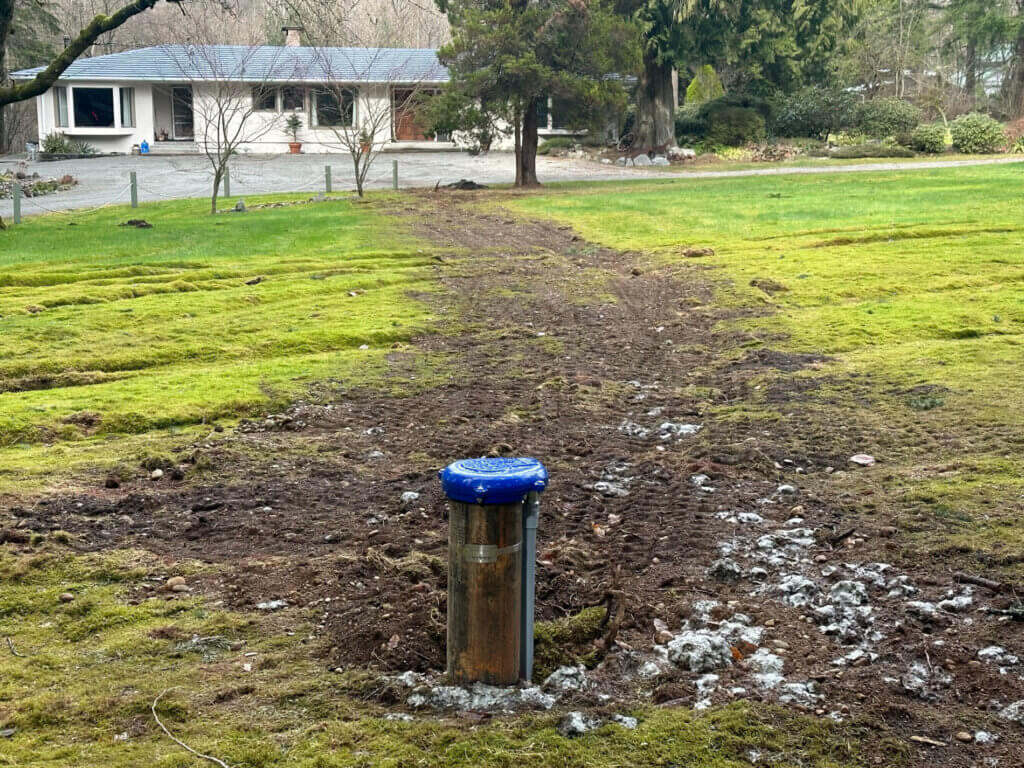
“We share more than a community we share our water”
— Colleen Roberts
Water Can’t Be Ignored When Buying Land for Sale in Rural British Columbia… Replacing Water Well Systems is Costly!
In British Columbia, the idea that water – life-giving and essential as it is – could be a barrier to homeownership might seem strange. But in many rural areas, water is one of the most significant factors to consider!
There are two primary types of water systems in a rural area: those with a municipal or community water system and those without one. Many community or city water systems pump water from surface sources like lakes and rivers or drilled water wells.
Municipal Water Utility
When a water utility, also known as a community, city, or municipal water system, provides water, you can drink, bathe in, and cook with the water without concerns or water quality issues most of the time. As a rule, municipal water will be deemed potable and should meet the Canadian Drinking Water Guidelines.
Private Rural Water Systems
Properties not serviced by a municipal water system may get their water from a water well or another source. In British Columbia, the responsibility for a private rural water system typically falls on the individual property owners, households, or cooperative or association members that utilize the rural water system.
In British Columbia, Canada, the responsibility for private water wells generally falls on the water well owner. However, landowners are solely responsible for their private wells’ construction, maintenance, and water testing for quality and safety.
When Selling Property in British Columbia, Property Owners Should Disclose the Following:
- A copy of the water well log/drilling report
- Water quality test results performed by a BC-certified laboratory
- Pumping test or flow test results
- Whether there are any wells on the property that have been decommissioned.
The BC Ministry of Environment and Climate Change Strategy provides guidelines and regulations for the province’s construction, maintenance, and decommissioning of water wells.
The Water Sustainability Act and the Groundwater Protection Regulation are the primary legislation governing water wells in British Columbia.
However, it’s essential for private water well owners to be aware of the provincial rules and regulations and to ensure that their water well is constructed, maintained, and tested according to the applicable standards.
A qualified professional, such as a registered well driller or pump installer, must perform any necessary work on the well in British Columbia.
Land for Sale in Rural British Columbia… What You Need to Know About Real Estate with Water Wells
Purchasing land for sale in rural British Columbia with a water well can get tricky. You’ll need to be sure that the well has enough water for your needs and that the quality of the water is good enough to drink or is treatable.
Another critical consideration is the depth of the well and the gallons per minute the well produces. Hopefully, the deeper the water well, the more likely it is to have a constant water supply, even during drought conditions.
Any water well could run dry or yield minimal water; the cost of drilling new water wells in British Columbia is often significant.
Get the cost to drill a well online; drilling estimates should be detailed, well drilling estimator will provide the drilling cost for any specific property in British Columbia. Learn more about the cost of drilling for water.
Overall, there are a lot of factors to consider when it comes to water on rural properties, among other things. But with the correct information and help, you’ll be able to find the most suitable property for your needs.

Why Do Water Wells Run Dry in British Columbia?
Water wells in British Columbia run dry primarily due to natural and human-induced factors. The primary reason is the depletion of groundwater resources, which occurs when water is extracted faster than groundwater can be replenished.
In addition, it can result from excessive pumping for agricultural, industrial, or domestic purposes, especially in regions with high water demand and limited supply.
Climate change exacerbates this issue by altering precipitation patterns, causing prolonged droughts or reduced snowpack, thus diminishing these aquifers’ natural recharge.
Additionally, land subsidence, the sinking of the Earth’s surface due to the removal of underground water or other geological factors, can cause a well to run dry by lowering the water table.
Finally, in some cases, geological changes like shifts in the Earth’s crust or natural variations in the water table can also lead to wells running dry, although these are less common causes.
- Seasonal Fluctuations: With changes in precipitation, the water table may rise and fall, and during hot weather, the water table may temporarily fall below the level of the well. Or a drilled well in rock may just quit producing… the fractures feeding water to the well dry up.
- Prolonged Drought: An extended period of below-average precipitation can cause a significant drop in the water table, leading to a dry well. Over-pumping of a well can create a similar scenario.
- Nearby Wells: Drilling new water wells or increased pumping from nearby wells can draw water away, reducing the water supply to an existing well.
- Dewatering: A dewatering process is used in construction, mining, and other industries to remove water from soil or a specific area. The primary objective of dewatering is to lower the water table or control groundwater flow, creating a safer and more stable environment for the intended activities.
- Aquifer Depletion: Groundwater reserves can be depleted over time due to over-extraction, changes in land use, or climate change.
- Poorly Sited Wells: Many wells in British Columbia need to be better located. As part of the water well installation, much effort is required to determine the location of the best water source.
- Water Well Aging: Over time, wells can become less productive due to sediment buildup or reduced permeability of the surrounding soil.
To address the issue, consult a professional to assess the situation and recommend appropriate solutions. These may include rehabilitating a water well, deepening the well, often drilling a new well in a different location, or finding alternative water sources.
Water Well Construction Issues
Common water well construction issues can result from various factors, including improper design, poor construction practices, and site-specific conditions. Some of the most common problems include:
- Inadequate Site Selection: Choosing a site with poor water yield, poor water quality, or high contamination risk can lead to an ineffective well—water well with possible contamination issues or a low producer that runs dry. The siting of a well is vital before drilling for water in British Columbia.
- Poor Water Well Design: Inadequate well depth, insufficient casing diameter, or incorrect screen design can all wreak havoc on your water’s quality and cause inefficient well functioning. It needs to be done right!
- Water Well Seal Installation: Surface water contamination can result from improperly installed well seals and poor water quality.
- Need for More Water Well Development: Inadequate water well development can lead to the decreased yield, poor water quality, and shorter well lifespan.
- Casing and Screen Failure: Low-quality materials or poor installation can lead to casing or screen failure, resulting in sediment infiltration, reduced water yield, or even well collapse.
- Inadequate Grouting of a Drilled Well: Proper grouting isn’t just a best practice — it’s essential for the long-term integrity of your well! Without strong and secure sealing, you risk complications like contamination from nearby sources or an overall loss in structural stability.
- Water Well Contamination Issues: Water well contamination is a significant health concern in British Columbia, as it can occur from agricultural chemicals, industrial pollutants, or even naturally occurring substances that could lead to an unsafe drinking supply. Keeping your water safe is of utmost importance.
- Over-pumping of a Water Well: Over-pumping a water well may result in low water levels, increased energy costs, and possible damage to the pump or well.
- Water Well Interference: When too many wells compete for the same resources, they can interfere and reduce productivity. This should be a careful consideration before drilling a well in British Columbia.
- Poor Maintenance: Inadequate water well maintenance can reduce efficiency, decline water quality, and decrease well lifespan.
Addressing these issues requires proper planning, design, construction practices, and regular water well system maintenance and monitoring.
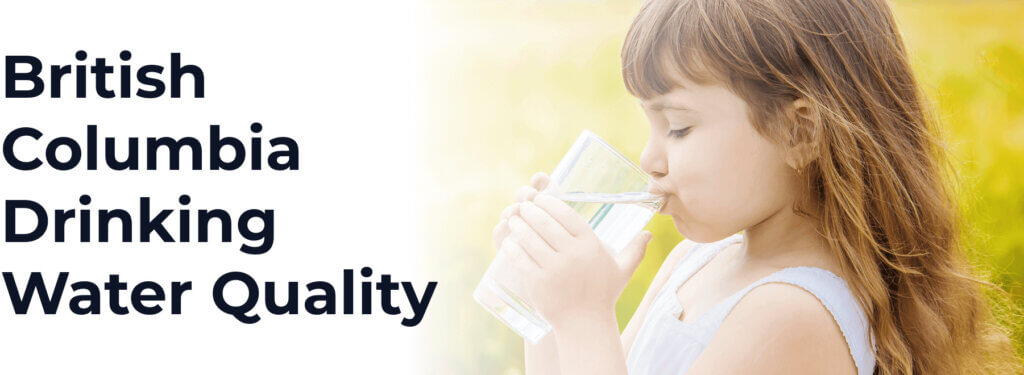
British Columbia (DWPA) & Canadian Drinking Water Guidelines
British Columbia Drinking Water Protection Act (DWPA) and Drinking Water Protection Regulation (DWPR) provide the regulatory framework for safe drinking water in British Columbia, Canada. The DWPR includes specific drinking water quality guidelines outlined in the British Columbia Drinking Water Guidelines.
Canadian Drinking Water Guidelines are similar to the provincial but federally regulated.
Microorganisms, disinfectants, disinfection by-products, metals, and organic compounds are among the parameters outlined in the British Columbia Drinking Water Guidelines.
The drinking water guidelines are based on current scientific knowledge and are regularly reviewed and updated as necessary.
The drinking water guidelines protect public health by ensuring that drinking water is safe and free from harmful contaminants. They apply to all public and private drinking water systems in British Columbia, including municipal water systems, private wells in rural areas, and small community water systems.
British Columbia Drinking Water Guidelines are available online and updated regularly by the British Columbia Ministry of Health. They are an essential resource for those responsible for providing safe drinking water in British Columbia.
BC Drinking Water Protection Act
BC Drinking Water Protection Regulations
Guidelines for Canadian Drinking Water Quality
BC Drinking Water Quality Information
Lead in Drinking Water in Britsh Columbia
BC Land for Sale with Water Wells

Hiring the Best Real Estate Agent for Rural Properties
When hiring a real estate agent to sell or purchase rural land for sale in British Columbia, here are some essential things to remember.
Representing rural properties in the Province differs considerably from representing urban properties in a few ways. Here are some factors to consider:
- Knowledge of the Area: You should hire a British Columbia agent with experience working in rural areas. An excellent rural area realtor should understand the local market, zoning regulations, and environmental factors that affect property value, such as water wells, septic systems, etc., representing country homes or rural land for sale in the Province:
- Experience with Rural Properties: Ask for references from previous clients who have sold or purchased rural properties from them, especially when these properties involve private systems such as water wells and septic systems.
A buyer’s offer to purchase a rural property must be conditional on receiving and approving all necessary disclosures and inspections, particularly in rural areas where properties may have unique characteristics or potential issues that may not be immediately apparent. - Property Features: Country homes or rural land may have different features than urban properties. For example, rural land may have more acreage, be zoned for agricultural use, and have natural features like streams or forests, property access, and possible contamination issues; there are many possible considerations.
- Marketing Strategy: Ask the agent about their marketing strategy for selling rural properties. Rural area properties often require a different approach to marketing than urban properties, so it’s essential to make sure that the agent you choose has a plan tailored to rural buyers.
- Communication: Choose an agent who communicates well with you before, during, and after the purchase or sale. You should be able to contact them, ask them any questions, and address any concerns you may have promptly.
- Negotiation Skills: Due to their unique challenges, strong negotiation skills are often required when dealing with rural properties. Make sure you choose an agent with experience in successful negotiations and who can advocate on your behalf.
- Assess the Licensee: Verify the agent’s legitimate British Columbia real estate certification. It is possible to cross-check their credentials online at the BCREA website.
- Personality Fit: Finally, choose an agent you feel comfortable working with. The purchase or sale of rural property in British Columbia is a significant transaction, and you want to work with someone you trust and can communicate effectively with.
Searching for Land for Sale in Rural British Columbia?
Learn more about rural land for sale including ranches, large farms, hobby farms, rural homes, vacant country land, recreational land, cheap rural land for tiny homes, and other rural development land.
Rural Area Land for Sale in BC with Water Wells & Septic Systems: 5 Questions to Ask Before Hiring a Real Estate Agent
How do you know if a real estate agent representing rural area properties in British Columbia is knowledgeable, trustworthy, and free of conflicts of interest? First, you ask them questions – lots of questions regarding water. Here are a few of the most significant:
- “How many properties without a municipal water connection have you sold?” Without experience, a real estate agent will likely be unable to help you navigate purchasing land for sale in a rural area. This agent could make mistakes that might cost you a lot of money.
- “What should I know about buying a property in a rural area with a drilled well for potable water?” This question will help you understand what a real estate agent understands about water wells in British Columbia, including water licenses, shared wells, and the importance of water testing and inspections.
- Ask the agent, “what is your scope of experience with septic systems?” If a real estate agent has never sold a property with a septic system, they likely need help understanding how to have it appropriately inspected. They may also need help understanding what questions to ask the seller.
- Before engaging, ask the real estate agent, “what steps will you need to take to confirm the availability of potable water?” It’s critical to understand that many properties do not have potable water. The water does not meet the Canadian Drinking Water Guidelines for chemical or microbial contaminants.
- Ask the real estate agent if a pumping test of the water will be required to confirm the yield of the water well. It’s essential to hire a qualified and licensed professional to ensure the accuracy and safety of the test results.
Hopefully, a well log or drilling report is provided along with the listing information; they are an excellent source of information but may NOT be reliable and should not eliminate further water well investigation for many reasons. - Ask, “have any of your previous clients experienced problems with their water wells after purchasing through you?” You want to know if the real estate agent has any history of selling properties with water problems.
- “Can you provide a list of clients I can call who have purchased land for sale in a rural area?” There should be no hiding here. A competent agent will have several happy clients willing to vouch for their services.
- “What is your experience in dealing with shared water systems?” If you are looking at a property for sale with a shared water system (such as a community well), it is crucial to understand the agent’s experience in this area. There will be additional information and British Columbia legalities, such as water rights, that must be understood and considered.
- “Who is responsible for collecting and sending water samples to the lab?” Be very cautious when the agent says it will be themselves or you! An independent third party should collect water samples to ensure no tampering. In this way, the buyer and seller of land for sale are protected.
How is “rural area” defined? It is defined as all population, housing, and territory not included within an urbanized area or urban cluster. Rural area or countryside is a geographic area that is located outside towns and cities. Cities, towns and suburbs are classified as Urban areas.
— Census.gov
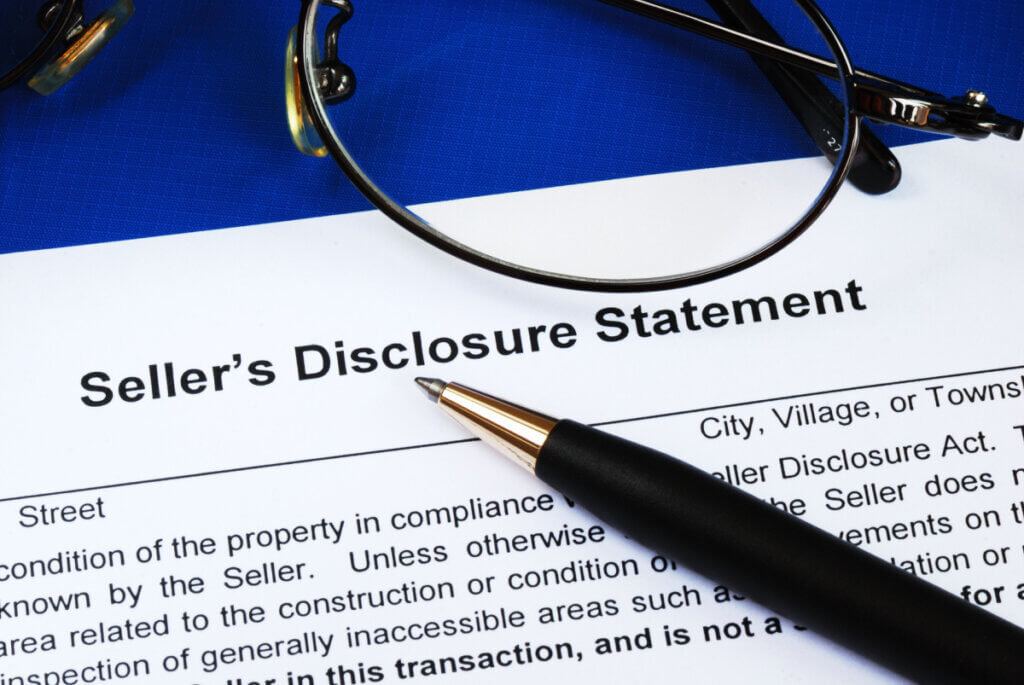
The Topic of Real Estate and Nondisclosure in British Columbia
Even though it may sound disappointing, it’s common for land for sale in rural British Columbia to be subject to disclosures.
A typical real estate nondisclosure issue involves a seller or real estate agent’s failure to disclose facts about a property to a buyer. This is because the undisclosed facts may influence a buyer’s decision to purchase the British Columbia property for sale or the price they are willing to pay.
The seller or agent may have failed to disclose a structural defect, a mold problem, flooding history, well water issues, septic system problems, or even noisy neighbors. As a result, this could be considered a nondisclosure issue.
Other possible nondisclosure issues include zoning or land use restrictions, pending litigation, and known hazards or environmental concerns.
In general, nondisclosure issues can lead to legal disputes between buyers and sellers in British Columbia, with the buyer seeking compensation for damages or losses resulting from the undisclosed issue.
Buyers and sellers should know their disclosure obligations and work with experienced real estate professionals to ensure all material facts are disclosed.
What is the British Columbia Home Buyer Rescission Period?
On January 3, 2023, the B.C. government implemented the Home Buyer Rescission Period (“HBRP”) for residential real estate transactions.
The British Columbia Home Buyer Rescission Period (HBRP) is a provision in British Columbia that allows buyers to rescind their contract to purchase specific residential properties within three business days after an offer is accepted.
During this rescission period, the buyer can back out of the contract without penalty or repercussions, except for a small fee paid to the seller. The fee is 0.25% of the property’s purchase price, with a minimum fee of $100 and a maximum fee of $10,000.
The purpose of the HBRP is to give buyers time to reconsider their decision and to review all of the relevant documents and information related to the purchase before committing to the transaction.
Especially important in cases where the buyer feels pressured to make a quick decision or if there are unexpected issues or problems with the property not disclosed in the initial negotiations.
It is worth noting that the British Columbia Home Buyer Rescission Period cannot be waived by either the buyer or seller in residential real estate transactions, regardless of whether a real estate licensee is involved.
If the buyer or seller agrees to waive the HBRP, it is still legally enforceable, and the buyer has the right to rescind the contract within the specified time frame.
BC Financial Services Authority Real Estate Public Resources
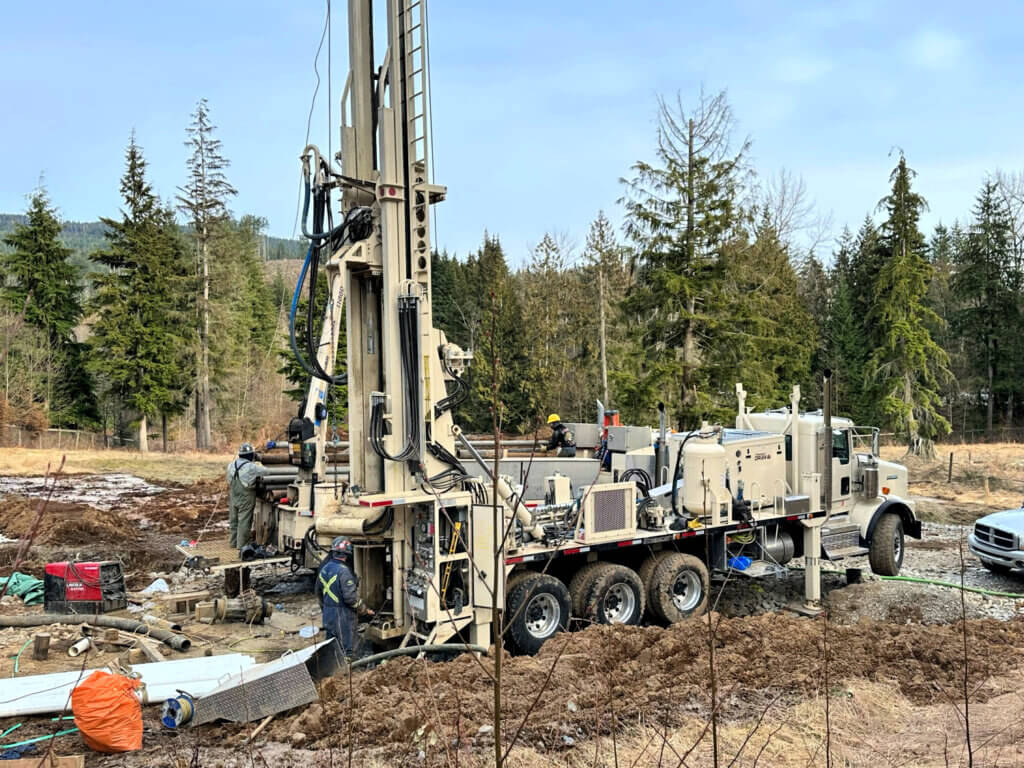
Buyer Beware: What is the Cost of Drilling a Water Well?
Types of Water Systems on Rural Properties
A few types of water systems will be located on a rural area property for sale: drilled wells, dug wells, spring-fed systems, shared wells, or community systems.
If there is a lack of available water, the well runs dry, or sometimes when water is affected seasonally, it is significantly reduced. Bulk water delivery trucks often fill water storage tanks, or rainwater harvest may be another source.
Each type of water system has benefits and challenges that must be considered. You should also remember that when it comes to mortgages, not all lenders will lend on all properties with insufficient water systems; this may be where an excellent rural property mortgage broker will come in handy.
A qualified real estate agent can help you determine if there’s a water well on rural land for sale in British Columbia and its specifications. If the rural property does not have a legal water source, your realtor should also be able to help you determine what will be involved in getting water onto the property and the cost.
Water Well Drilling in British Columbia is Costly
Learn more about the cost of drilling a well in British Columbia. Water well drilling costs have increased significantly over the past three years.
In 2023, well drilling costs in the province are at an all-time high. If drilling a water well appears to be your only option, getting a detailed estimate for the local water well drilling cost and a well pump and pressure system installation is essential.
If you are going to drill for water, try to get the costs before making an offer on the property or removing the “water well subject to” clause, as it could significantly impact the value of the land. Always keep in mind that the process is very costly when it comes to septic systems and water wells.

Water Testing – A Conflict of Interest May Arise
Water testing and water wells can significantly impact the value and safety of a property. Real estate agents who take water samples or advise on a water well or water system in any way may be a conflict of interest. Real estate agent’s primary responsibility is protecting their client’s rights and interests.
Since the real estate agent is financially interested in selling the property, if the water test results show that the well water is problematic, it could adversely impact the sale.
Suppose the real estate agent is conducting the water testing themselves; it can be perceived as a conflict of interest as they may be incentivized to manipulate, minimize or ignore the negative test results to ensure the sale is completed.
Real Estate Agents are NOT Water Experts in British Columbia
In such cases, the purchaser should use an independent third-party water testing and water well inspection company to conduct the water sampling and inspections.
Seller Beware: If you are a vendor selling a rural area property, it’s in your best to protect the integrity of your water system, do not allow someone to convince you that you have a water quality issue when a failed water testing report it’s nothing more than the result of a water sampling error.
Overall, real estate agents need to disclose any potential conflicts of interest. They must also ensure they act in the client’s best interests by taking the necessary steps.
Exploring the Market for Rural Area Properties for Sale in British Columbia
Once you have an agent, it’s time to explore the market. This is where your agent will start earning his keep. They will help you understand what kind of property you are looking for and what price range you should consider.
Your real estate agent should help you understand the pros and cons of all you may encounter and help you make an informed decision.
How to Make an Offer on Rural Area Properties
Once you’ve located land for sale that you want to purchase and done sufficient due diligence, it’s time to make an offer.
Often, the seller is represented by a real estate agent as well. This means two agents are involved in the transaction, each with a responsibility to protect. Therefore, you must have a clear understanding of what you want and what you are willing to compromise on. This is before negotiations to purchase land for sale in a rural area.
Your agent should be able to help you put together a solid offer to purchase that is fair to both you and the seller. They will also be able to advise you on what kind of contingencies to include in your offer—for example, all inspections, financing, what is to remain with the property, etc.
Closing the Deal on Land for Sale in a Rural Area
Closing a real estate transaction is a complex process that involves much more than just signing a contract. Real estate transactions typically involve several conditions and contingencies that must be met before closing the deal. These contingencies protect the buyer and seller and ensure the transaction is completed successfully.
Some common contingencies that may be included in a real estate transaction include:
- Financing contingencies: require the buyer to secure financing to purchase the property. This ensures the buyer has the necessary funds to complete the transaction.
- Inspection contingencies: These require the property to be inspected by a licensed home inspector, water well, and septic system to ensure that all is in a satisfactory condition. If any issues are found during the inspection, the buyer may have the right to back out of the deal or negotiate repairs.
- Title contingencies: These ensure that the seller has clear title to the property and that there are no liens or other claims against it.
- Contingencies for repairs: These require the seller to make repairs or upgrades to the property before the transaction can be completed. This can include repairs to the roof, plumbing, electrical system, water well, septic system, or other property components.
- Contingencies for other obligations: These may include requirements for the seller to clear the property of any hazardous materials, to remove any personal property, or to comply with any zoning or land use regulations.
- Survey contingencies: A property survey may need to be conducted to provide an accurate and detailed assessment of the boundaries, dimensions, and characteristics of the land for sale. It is not unusual in rural areas to find properties that have not been surveyed for many years. There are several other reasons why a property may need to be surveyed, including:
- To establish property boundaries: A survey can help to identify the exact location of the boundaries of a property, which can be crucial in legal disputes or when planning to build a fence or other structure.
- Identify easements, rights-of-way, and other restrictions on property: A survey can be used to identify easements, rights-of-way, and other restrictions on the property that could affect its use.
- To determine the topography and contours of the land: A survey can help identify any elevation changes or other property features that could impact its development or use.
- To ensure compliance with local regulations: In many rural areas, local ordinances require that a property be surveyed before certain types of land use, construction, or development occur.
- To assess the value of the property for sale: A survey can provide valuable information about the size, shape, and characteristics of a property, which can be used to help determine its value for sales or financing purposes.
Overall, a property survey can provide relevant information that can help protect property owners’ interests and ensure that they comply with local regulations.
These contingencies are necessary to protect the buyer from any potential liabilities that may arise or any unexpected costs that the buyer may incur. For example, if the seller had not cleared the property of any hazardous materials, the buyer would be responsible for doing so and incur the associated costs.
The water well or other water supply sources may not work or are not as represented by the vendor or real estate agent. The purchaser might need to spend $50,000 or more to replace them. Once a real estate deal is completed, claiming compensation without possible legal action is challenging.
The buyer and seller can rest assured that a real estate transaction is fair and their interests are protected by including these contingencies. This information can help prevent surprises and give both parties the confidence to move forward. - Additionally, a final inspection of the property should be arranged, and a warranty should be prepared if one has been agreed upon.
Upon signing all the paperwork and fulfilling all conditions, you will finally own a piece of the countryside in rural British Columbia!
Properties for Sale in Rural British Columbia
Learn more about rural land for sale including ranches, large farms, hobby farms, rural homes, vacant country land, recreational land, cheap rural land for tiny homes, and other rural development land.


Get a monthly update of our most popular articles directly to your inbox such as Water Well Advice including Water Testing, Well Drilling... what you need to know when buying or selling Real Estate with Water Wells, Septic Systems & many other rural living topics!


